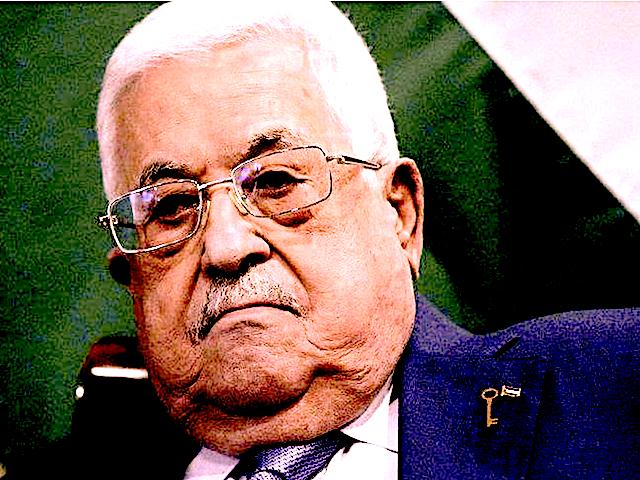In a recent development that underscores the ever-evolving dynamics in the Middle East, Israel has firmly rejected a proposed visit to the Gaza Strip by Palestinian Authority (P.A.) President Mahmoud Abbas. This decision, reported by Israel’s public broadcaster, Kaan News, on Tuesday, has sent ripples through diplomatic circles and further highlighted the complex relationship between Israel, the Palestinian Authority, and Egypt.
Egypt’s Surprising Move: Opening Rafah for Abbas?
In a surprising turn of events, Egypt, which has long played a pivotal role in Gaza’s affairs, reportedly agreed to facilitate Abbas' entry into Gaza via the Rafah border crossing. However, Egypt's offer came with a significant caveat: Israel's approval was required. Israel, exercising its sovereignty and security prerogatives, declined the request, thereby thwarting the proposed visit.
Report: “Egypt has agreed to let Mahmoud Abbas enter Gaza through the Rafah crossing, but only if Israel approves.”@Israel, please say yes!
— Nazi Hunters (@HuntersOfNazis) September 10, 2024
He knows that Hamas & its supporters would try to assassinate him the second he sets foot in Gaza. So it'd be hilarious to watch him… pic.twitter.com/Tn45Ct6TmA
Egypt’s willingness to open Rafah for Abbas raises eyebrows, particularly given its history of tight control over the Gaza border. While Egypt has quietly allowed the flow of goods into Gaza, it has been far more restrictive about what, and more importantly who, can exit the territory. This shift suggests a potential recalibration of Cairo’s strategy towards Gaza, likely motivated by broader regional aspirations and the intricate web of alliances in the Middle East.
Diplomatic Maneuvering Behind the Scenes
According to an Arab diplomat from a neighboring country, Ramallah had actively sought assistance from both Israel and Egypt to enable Abbas' visit, even before the horrific Hamas-led attack on October 7. This appeal was part of a broader strategy by the Palestinian Authority to reassert its presence and influence in Gaza, a territory it has been estranged from since Hamas violently seized control in 2007.
Israel Rejects Abbas Visit to Gaza - @JewishPress - https://t.co/G3EaxBpkrU pic.twitter.com/WIgRDzICFv
— JewishPress.com (@JewishPress) September 10, 2024
The diplomat's revelation suggests that Egypt is eager to strengthen its influence in Gaza, possibly as a prelude to a more permanent arrangement where the P.A. could assume control of the territory post-conflict. This includes managing the Gaza side of the Rafah crossing, a significant shift that would have profound implications for the balance of power in the region.
The P.A.'s Ambitions in Gaza: A Futile Dream?
A senior Palestinian Authority official in Ramallah confirmed to Kaan that an official request had been submitted to Israel for Abbas to enter Gaza via one of the Israeli-controlled crossings, either at Erez or Kerem Shalom. This request, however, seems more symbolic than practical, given the deep-seated mistrust between Israel and the P.A., and the ongoing volatility in Gaza. The secular Abbas has been pandering to the Islamists in order to try and help gain support for his cause and have backers like Turkish President Recep Tayyip Erdogan view him as a viable partner. However, his efforts seem have not been taken seriously by the broader Muslim world.
🚨 Wow 🤦🏻♂️ not the path to peace
— Kosher🎗🧡 (@K0sher_C0ckney) August 16, 2024
“America is the plague, and the plague Is America; I will go to the Gaza Strip and from there to Jerusalem; We are implementing Shari'a Law - Victory or Martyrdom”
Palestinian President Mahmoud Abbas speech in Turkey
pic.twitter.com/12IQQggd2D
President Abbas has not set foot in Gaza since 2007, a stark reminder of the deep divisions within Palestinian leadership. His proposed visit, which was initially planned for mid-August, has been repeatedly delayed due to the fraught political and security environment.
Egypt’s Strategic Calculations
Earlier reports indicated that Egypt was prepared to allow Abbas into Gaza through the Rafah Crossing, contingent on Israel's consent. This move aligns with Egypt's broader goal of maintaining a foothold in Gaza, particularly in anticipation of a post-war scenario where the Palestinian Authority could be installed as the governing body. Such a development would allow Egypt to wield considerable influence over Gaza, a territory that has long been a focal point of regional conflict.
However, the skepticism surrounding the P.A.'s ability to govern Gaza cannot be overstated. Ghassan Khatib, a seasoned political analyst and member of the Palestinian People’s Party, has bluntly stated that the P.A. has "zero chance" of effectively ruling the Gaza Strip. This assessment reflects the harsh realities on the ground, where Hamas' entrenched power and popular support pose formidable challenges to any attempt by the P.A. to reassert control.
Conclusion: A Region on the Brink
Israel's rejection of Abbas' visit request is more than just a diplomatic snub; it is a clear signal that the path to peace and stability in Gaza remains fraught with obstacles. The interplay between Israel, Egypt, and the Palestinian Authority continues to shape the region's future, with each actor pursuing its own strategic interests. As the situation in Gaza remains volatile, the prospect of a Palestinian Authority-led administration in the Strip seems increasingly remote, leaving the region teetering on the edge of further conflict and uncertainty.


